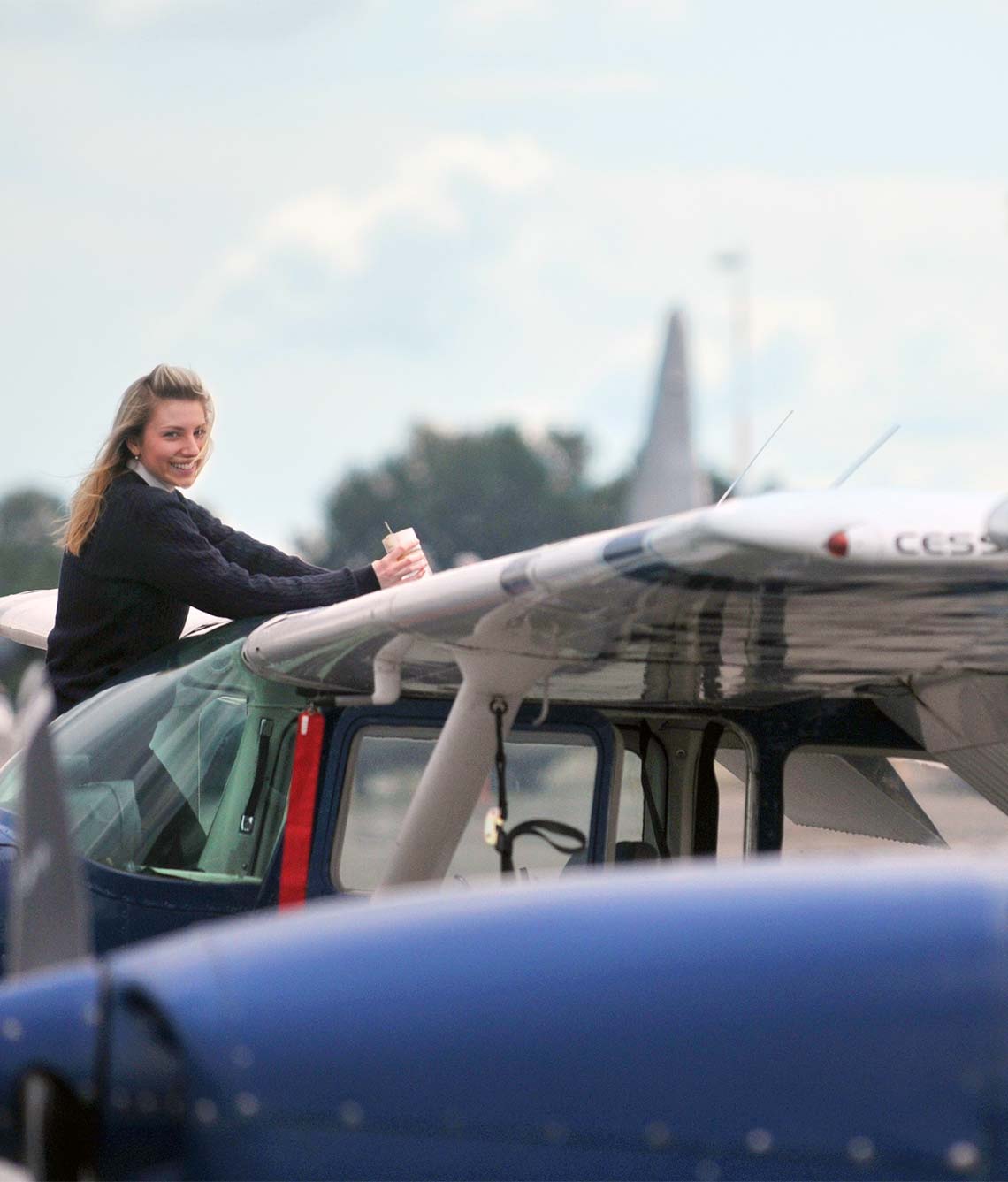Prepare for take-off

If you like the idea of taking charge of your own education while also earning your pilot wings, choose UFV interdisciplinary Bachelor of Integrated Studies.
As part of this versatile bachelor's degree program, UFV offers an aviation theme, allowing you to complete a two-year aviation diploma and continue your studies to earn a Bachelor of Integrated Studies. This flexible aviation option allows you to craft an educational plan that suits your career goals, while also completing training for your commercial pilot license and at least one of the advanced options: heavy jet or professional flight instructor.
Taking strategic classes to combine with your flight training can give you an edge in select aviation careers: for example, adult education classes can help you kick-start a career in flight instruction; communications classes could open the door to becoming a broadcaster pilot for a radio or TV station; criminal justice classes may be just the thing you need to launch a career as a law enforcement pilot; agriculture classes could lead to a specialization as a spray plane applicator pilot; and the list goes on.
As part of your aviation training, you undergo flight training in Cessna single engine and Piper multi-engine aircrafts to build up your log of flying hours. You also benefit from simulator training in a variety of simulators, including a Navajo and Beechcraft King Air.
When you graduate, you can leverage your diverse skill set to carve an interesting career in the aviation industry.
Career Outlook for Aviation
According to Boeing's Pilot and Technician Outlook, between now and 2038, demand for pilots will grow, as airlines across the globe expand their fleets and a generation of older pilots retire. The largest growth is projected in the Asia Pacific region, with China accounting for half of the demand for new pilots. Europe will require 148,000 pilots, North America 212,000, Latin America 54,000, the Middle East 68,000, Africa 29,000, and Russia/Central Asia 27,000.
Earning a Bachelor of Integrated Studies with an aviation theme can lead to better career advancement opportunities in traditional aviation careers such as flight instruction, airline travel, or charter flights. Or it can open the door to niche opportunities as a medevac pilot, government services pilot, law enforcement pilot, agricultural pilot, newscasting pilot, travel tourism pilot, or aerial fire ranger.
